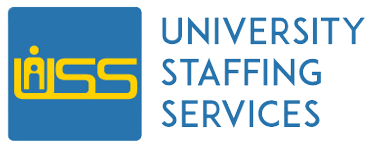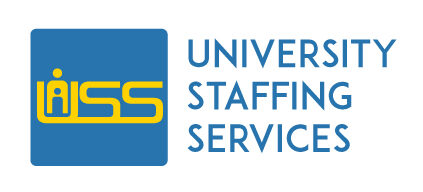As we step into 2023, the staffing industry finds itself at a pivotal moment, facing a rapidly evolving workforce landscape. Technological advancements, demographic shifts, and changing attitudes towards work have significantly impacted the way companies source, hire, and retain talent. In this article, we will explore the key trends shaping the staffing industry in 2023 and how businesses are adapting to stay competitive in the talent market.
1. Emphasis on Remote and Flexible Work
The global pandemic of 2020 accelerated the adoption of remote work, and its impact is still reverberating throughout the staffing industry. In 2023, remote work is no longer an occasional perk; it has become an essential aspect of many job seekers’ expectations. Companies are now actively embracing remote work arrangements to attract and retain top talent.
Flexibility in work hours and location has become a non-negotiable factor for many candidates. The gig economy continues to thrive, with more professionals seeking freelance or contract work, allowing them to have greater control over their schedules and work-life balance. Staffing agencies are playing a crucial role in connecting companies with remote workers and freelancers, facilitating a more agile and adaptable workforce.
2. The Rise of Artificial Intelligence in Recruitment
Artificial Intelligence (AI) and automation have revolutionized various industries, and recruitment is no exception. In 2023, AI-driven tools are becoming an integral part of staffing processes, streamlining candidate sourcing, assessment, and onboarding.
AI-powered applicant tracking systems (ATS) help staffing agencies sift through vast pools of resumes, identifying the most suitable candidates in a fraction of the time it would take manually. These systems use natural language processing to extract relevant information from resumes and match them with job requirements, improving the efficiency and accuracy of the recruitment process.
Additionally, AI-powered chatbots and virtual assistants are being employed to engage with candidates, answer their queries, and even conduct initial screening interviews. This not only saves time for recruiters but also provides candidates with a more convenient and responsive experience.
However, while AI offers tremendous benefits, there are concerns about potential biases in algorithms and the need for human oversight to ensure fair and equitable hiring practices. Striking the right balance between automation and personalized human touch remains a challenge for staffing agencies in 2023.
3. Skills-Driven Hiring and Upskilling Initiatives
The rapid pace of technological advancements has led to an ever-widening skills gap in the job market. In response, many companies are shifting their focus from traditional qualifications and degrees to skills-driven hiring. Rather than emphasizing formal education, employers are now seeking candidates with relevant skills and the ability to adapt and learn quickly.
Staffing agencies are also investing in upskilling and reskilling initiatives to equip candidates with the skills needed for emerging roles. These initiatives not only benefit job seekers but also provide companies with a more diverse and capable talent pool.
In 2023, we see a growing partnership between staffing agencies, educational institutions, and businesses to identify in-demand skills and create training programs that address industry-specific needs. This collaborative approach helps bridge the skills gap and prepares the workforce for the jobs of the future.
4. Diversity, Equity, and Inclusion (DE&I) as a Priority
Diversity, equity, and inclusion have moved from being optional “nice-to-haves” to essential business imperatives. Companies are recognizing the value of diverse teams in driving innovation and creativity, leading to better decision-making and increased productivity.
Staffing agencies, in 2023, are taking a proactive role in promoting DE&I by actively sourcing diverse candidates and presenting them to clients. Moreover, they are working closely with organizations to design inclusive recruitment processes and eliminate bias at every stage of hiring.
By fostering an inclusive work environment, companies can attract top talent from different backgrounds and experiences, ultimately leading to better business outcomes.
5. Employee Well-being and Mental Health Support
The challenges posed by the pandemic have significantly impacted employees’ well-being and mental health. In 2023, the staffing industry is witnessing a shift in focus towards providing comprehensive support to workers beyond their job placements.
Staffing agencies are partnering with companies to develop employee assistance programs (EAPs) and mental health resources to ensure their workforce’s overall well-being. Additionally, agencies are prioritizing open communication and regular check-ins with candidates to address any concerns and offer support during uncertain times.
6. Gig Work Management and Compliance
With the rise of the gig economy and an increasing number of contract workers, companies are facing challenges in managing their contingent workforce effectively. Compliance with labor laws and regulations is a crucial aspect that cannot be overlooked.
In 2023, staffing agencies are investing in robust gig work management platforms that help track working hours, compensation, and compliance with labor laws. These platforms also enable better communication and coordination between companies and their contingent workers, promoting a positive employer-employee relationship.
7. Data-Driven Decision Making
Data analytics has become a fundamental aspect of the staffing industry in 2023. From identifying sourcing strategies to predicting candidate success, data-driven decision-making helps agencies optimize their recruitment processes and provide valuable insights to clients.
By leveraging data analytics, staffing agencies can track and measure key performance indicators (KPIs), such as time-to-fill, candidate quality, and retention rates. These metrics enable agencies to continuously improve their services and deliver more value to their clients.
8. Environmental, Social, and Governance (ESG) Considerations
Environmental, social, and governance (ESG) considerations have gained prominence in the business world, and staffing agencies are also taking note. Clients are increasingly looking for partners that align with their ESG values, prompting staffing agencies to incorporate sustainability and ethical practices in their operations.
In 2023, we see staffing agencies adopting sustainable practices, promoting diversity and inclusion, and contributing to their communities positively. Companies that prioritize ESG considerations not only enhance their brand reputation but also attract like-minded clients and candidates.
9. Hybrid Work Models and Office Space Transformation
While remote work continues to gain traction, many companies are adopting hybrid work models, blending remote and on-site work. This shift has implications for office space management and utilization.
In 2023, staffing agencies are assisting companies in optimizing their office spaces for collaboration, employee well-being, and productivity. The focus is on creating flexible work environments that cater to both remote and in-office employees, fostering a seamless and inclusive work experience.
10. Employee Benefits and Perks
To attract and retain top talent, companies are reevaluating their employee benefits and perks in 2023. Beyond the traditional healthcare and retirement plans, employees are seeking benefits that support their overall well-being.
Staffing agencies are working with companies to design comprehensive benefits packages that include mental health support, flexible work arrangements, professional development opportunities, and more. By offering attractive benefits, businesses can differentiate themselves in a competitive talent market.
Conclusion
As we navigate through 2023, the staffing industry continues to evolve in response to the changing workforce landscape. Embracing remote work, leveraging AI in recruitment, focusing on skills-driven hiring, promoting diversity and inclusion, and supporting employee well-being are just a few of the key trends shaping the industry.
In this dynamic environment, staffing agencies play a pivotal role in helping companies adapt to the evolving needs of the workforce. By staying attuned to these trends and proactively responding to emerging challenges, staffing agencies can remain agile and relevant, enabling businesses to thrive







